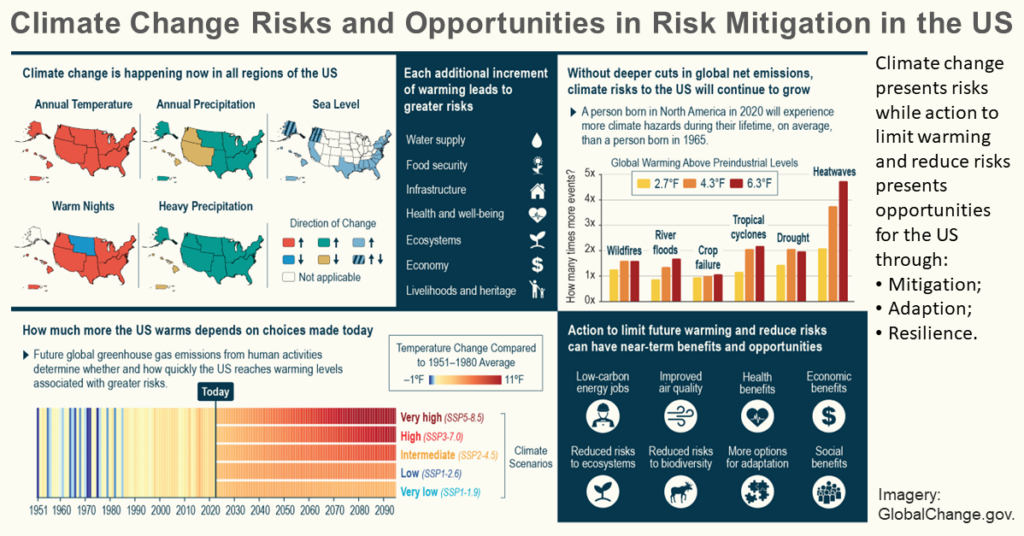Allison R. Crimmins, Alexa K. Jay, Christopher W. Avery, Travis A. Dahl, Rebecca S. Dodder, Benjamin D. Hamlington, Allyza R. Lustig, Kate Marvel, Pablo A. Méndez-Lazaro, Mark S. Osler, Adam Terando, Emily Weeks, and Ariela Zycherman. "Fifth National Climate Assessment: Understanding Risks, Impacts, and Responses". U.S. Global Change Research Program. June 05, 2024. https://nca2023.globalchange.gov/...
Gregory Autin | June 5, 2024
Adaptation planning more effectively reduces climate risk when it identifies not only disparities in how people are affected by climate change but also the underlying causes of climate vulnerability. Transformative adaptation involves consideration of the physical and social drivers of vulnerability and how they interact to shape local experiences of vulnerability and disparities in risk. Effective transition involves developing and investing in new monitoring and evaluation methods to understand the different values of, and impacts on, diverse individuals and communities. Adaptation measures that are designed and implemented using inclusive, participatory planning approaches and coordinated governance and financing have the greatest potential for long-term social and economic benefits.


